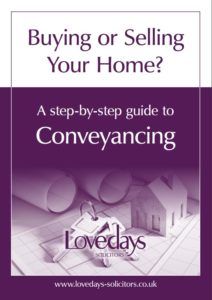- Home
- Personal Services
- Advice for Employees
- Conveyancing
- Dispute Resolution
- Boundary Disputes
- Dealing with Rent Arrears
- Japanese Knotweed Claims
- Landlord and Tenant Disputes
- Landlord Harassment & Illegal Eviction
- Negligence Claims Against Builders & Developers
- New Build Property Disputes
- Noisy Neighbour Disputes
- Personal Debt Collection
- Property Misrepresentations Claims
- Rights of Way Disputes
- Section 21 No Fault Evictions
- TOLOTA Claims
- Tree & Hedge Neighbour Disputes
- Divorce and Separation
- Family Law
- Lasting Power of Attorney
- Licensing
- Probate Law
- Trusts
- Wills
- Business Services
- Reviews
- Make An Enquiry
- Cost and Service Information
- About Us
- Contact Us
Section 21: No Fault Evictions
A rental property means that a landlord leases a home to a tenant for a set period of time, following which that landlord and tenant can then decide to continue with or renew the tenancy or the tenant may decide to move on to somewhere new. However, there can be occasions where a landlord wants a tenant to leave a property before the end of their lease, and therefore they could issue a Section 21 notice.
Understanding Section 21 Notices
What is a Section 21 Notice?
Sometimes a landlord might want to evict a tenant because they have broken the terms of their contract, such as failing to pay their rent, and this would be deemed to be a tenant’s fault. However, a Section 21 notice is issued when no-one is at fault, as it could just be that the landlord wants to sell the property, although no reason ever has to be given.
A landlord cannot simply remove a tenant from the property, and so they need to issue a Section 21 notice informing them that the landlord is seeking to reclaim possession of the property and giving the tenant a set amount of time to move out.
{quote}
How to Check if a Section 21 Notice is Valid
When a Section 21 Notice is issued, it needs to be valid in order to follow through on it. It is important to note that a Section 21 Notice can only be issued to tenants who are on an assured shorthold tenancy agreement or periodic tenancy. In order to obtain a Section 21 Notice, the landlord must ensure that they fulfil certain criteria with regards to the tenancy, such as ensuring the deposit is correctly protected, all relevant certificates are in place and that no tenant fees have been paid to them.
A landlord must also ensure that the Section 21 notice period at least meets the legal minimum requirement of two months and it cannot be issued within the first four months of the original tenancy. If the property has been issued with an improvement notice by the council in the last six months, the Section 21 notice will also be invalid.
It should go without saying, but it is also important that all of the information on the notice is correct, including names and dates.
The Legal Process of a Section 21 Eviction
Whilst landlords can write their own Section 21 notices, it is advisable to do this with the help of a solicitor to ensure that it is both legal and valid. The Section 21 notice is designed to inform the tenant that the landlord wishes to reclaim the property at the end of the specified notice period, but it is not an eviction notice.
The notice needs to be given in writing, and every effort should be made by the landlord to be accommodating and reasonable. Any responses should also be polite and professional. The Section 21 notice is only valid for six months after the notice has been served – if no action has been taken in that time then another one will need to be issued.
If the tenant refuses to leave by the specified date on a valid Section 21 Notice, the landlord can then apply to the courts to have them removed.
{quote}
Tenant’s Rights and Protections
Tenants can be extremely vulnerable and so there is protection in place for them. All tenants have the right to live in a property that is safe and in a good state of repair, with all the relevant Gas Safety Certificates and Energy Performance Certificates in place. They should know who their landlord is and be able to live in the property undisturbed.
A tenant has the right to expect their deposit returned when the tenancy ends and possibly even to have it protected, and they can challenge any charges which they feel to be excessively high.
All tenants should have a written agreement in place, outlining fair and reasonable terms for their tenancy and they should be protected from unfair eviction and unfair rent.
The Changing Landscape of Tenant Evictions
The way in which tenants can be evicted and the rights that both tenants and landlords have are changing thanks to The Renters Reform Bill which aims to offer a more secure landscape to renters.
The Renters Reform Bill will end Section 21 no-fault evictions in order to give tenants more security, to allow them to feel confident challenging poor standards and to force landlords into being more transparent and accountable.
The Impact of the Tenant Fees Act 2019
The Tenant Fees Act 2019 aims to make rental contracts and any fees which are associated with them much clearer and applies to both landlords and letting agents.
The Act applies to those with assured shorthold tenancies, student accommodation or tenancy licences and bans viewing fees as well as tenancy set-up or check-out fees, professional cleaning fees after check-out, inventory check fees, third party fees for things such as credit checks, references and insurance, gardening or cleaning fees or chimney sweeping costs.
If a landlord has unlawfully charged a tenant any of these fees, then they will not be able to issue a Section 21 notice. This is also the case if the landlord has unlawfully retained all or part of a tenant’s deposit. These must all be repaid before a Section 21 notice can be issued.
The Future: The End of No-Fault Evictions in the UK
Whilst Section 21 no fault evictions are currently still valid, this is likely to be short-lived as The Renters Reform Bill makes its way through Parliament. It is expected that Section 21 will not be fully abolished until late 2025 or even early 2026. When it is removed, landlords will only be able to remove tenants from their properties using a Section 8 notice which requires them to provide valid grounds for doing so.
{quote}
How Lovedays Solicitors Can Help
Lovedays Solicitors are on hand to help both landlords and tenants. We can help to put together a Section 21 notice, ensuring that it is completely legal, valid and fair, and can help to follow through on regaining the property.
We are also here to help tenants who have been issued with a Section 21 notice by checking its validity and advising them on what their next steps should be.
Our friendly and professional team have years of experience behind them and are fully up to date on the changes to the law, meaning that you will get well-informed and knowledgeable advice that puts you in a position of power when making your decisions.
Preparing for Court: What Tenants Need to Know
If a tenancy is taken to court, it is important to understand your rights. As a tenant, if the court advises you of a time and date of a possession hearing, it is important that you attend it. You should be supplied with a defence form where you can outline your case, but this often does not allow for much detail. Attending court gives you the opportunity to explain to the court why you should be allowed to stay.
You should ensure that you have all the documentation that you might need to prove your case, including your lease agreement and any communication that has taken place between yourself and your landlord. It is advisable to get the help of a solicitor who can tell you exactly what you need and can help you work out the details of your argument.
With all evidence clearly presented, it is much easier for the courts to come to a fair and correct decision.
{quote}
For Landlords: Alternatives to Section 21 Evictions
As a landlord, it may be necessary to turn to other methods in order to regain your property from a tenant. The most common one is by issuing a Section 8 notice instead, which can be served at any point during an assured or assured shorthold tenancy and is used when a tenant has broken the terms of their tenancy agreement.
This could include getting into arrears with their rent, causing damage to the property or antisocial behaviour. However, there are also adaptations being planned which will allow landlords the right to issue a Section 8 notice in other circumstances, such as wanting to move into the property themselves or wanting to sell.
Resources for Tenants Facing Eviction
If you are a tenant who is facing eviction, then if it important that you know exactly where you stand. You may be able to speak to people in your local council about your rights or being rehomed. A solicitor will also be able to advise you on what your options are and whether the eviction notice that you have been supplied with is valid. Citizens Advice also offer a lot of information on tenancy agreements and can point you in the right direction to help you find out more.
Conclusion
Whilst Section 21 notices are still very much open to use by landlords, they have a limited life span. If you are a tenant or landlord entering into a tenancy agreement, then it is important that you understand how these affect you and what your options might be before signing on the dotted line.
{quote}
Frequently Asked Questions
You do not have to wait until the end of the notice period to move out if you have found somewhere else to live. Make sure that you agree to any earlier moving out dates with your landlord in writing.
When you reach the date specified in the Section 21 notice, a tenant is required to leave the property voluntarily. If this is not the case, then the landlord will need to apply to the courts to have them evicted.
You should never ignore any legal notice that you receive. If you do, the landlord will then start legal proceedings to have you evicted.
When a landlord receives your deposit, they are required to protect it within 30 days. If they fail to do so a Section 21 can only be served when the deposit is returned in full, or with any deductions that have been agreed between both the tenant and the landlord.
Get Support
Receiving a Section 21 notice can be daunting, but being informed about your rights is empowering. Don’t face this challenge unaided; Lovedays Solicitors are experts in tenancy legislation and are committed to protecting your dwelling. Whether confirming the legitimacy of a notice or exploring eviction alternatives, our proficiency is your benefit. Contact us today—your home deserves a robust defence. Enquire with Lovedays Solicitors and establish a solid legal foundation.

Free Guide
If you don’t know your leasehold from your freehold, then get our Free Conveyancing Guide. It contains details about the steps you will need to take with any property transactions. The Guide giving you detailed guidance on what your lawyer will be doing for you and what to look out for.


Lovedays Solicitors, Brooke-Taylors Solicitors, Potter and Co Solicitors and Andrew Macbeth Cash and Co Solicitors are the trading names of Derbyshire Legal Services Limited which is a company registered in England and Wales under company number 08838592. Registered office Sherwood House, 1 Snitterton Road, Matlock, Derbyshire, DE4 3LZ.
Authorised and Regulated by the Solicitors Regulation Authority under SRA ID number 637916.
-
01629 56660
-
This email address is being protected from spambots. You need JavaScript enabled to view it. -
Sherwood House
1 Snitterton Road
Matlock
Derbyshire
DE4 3LZ
© Copyright 2019 Derbyshire Legal Services Limited | Website by WebWorks